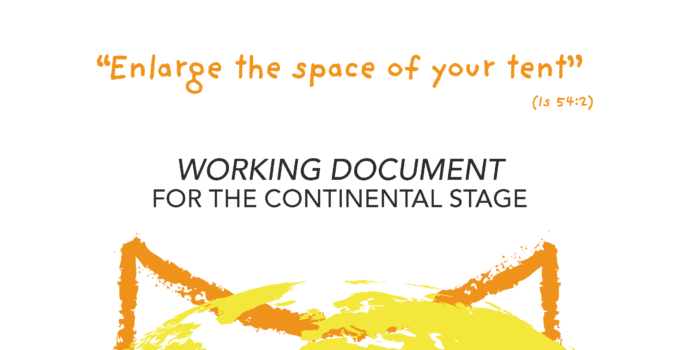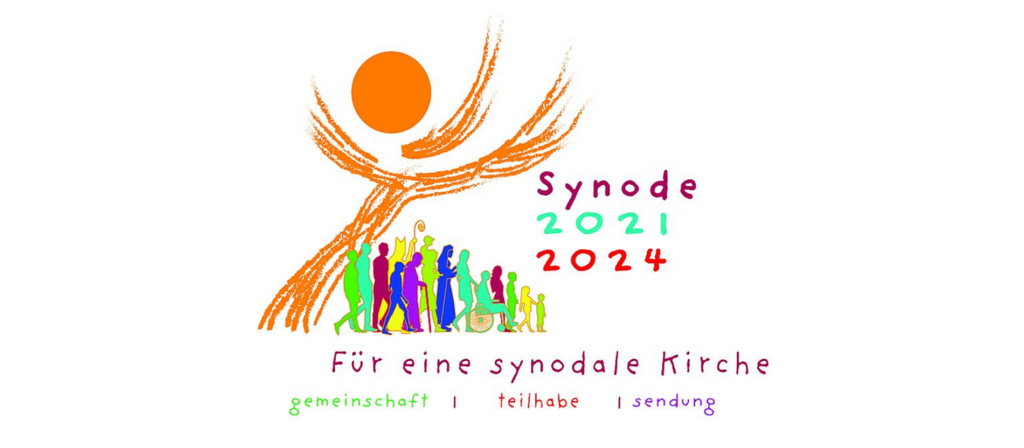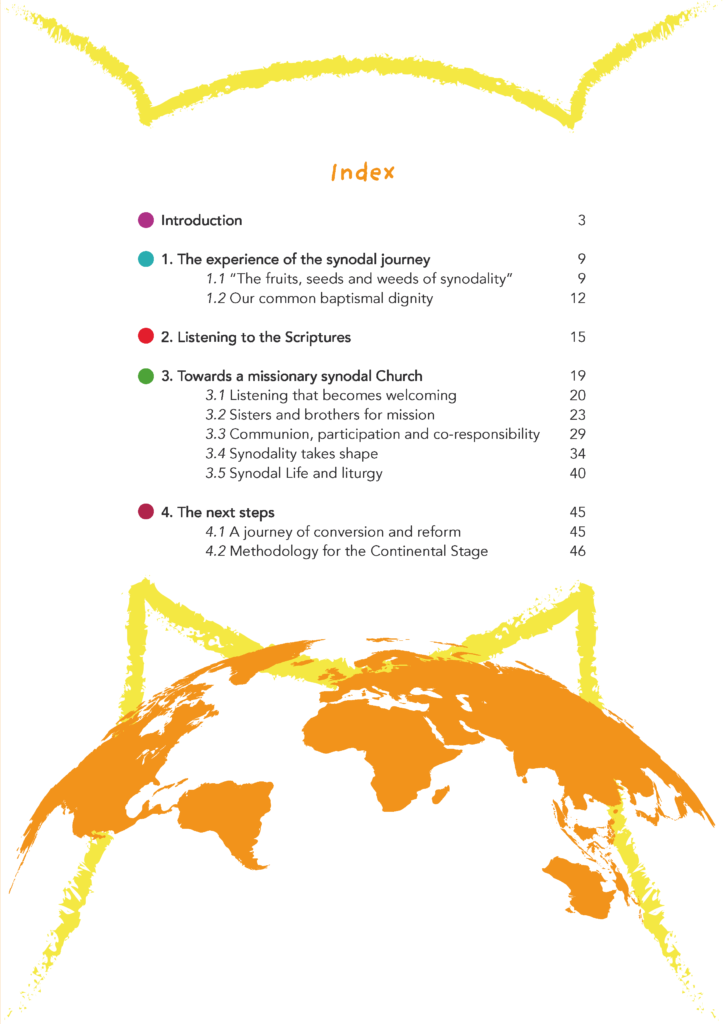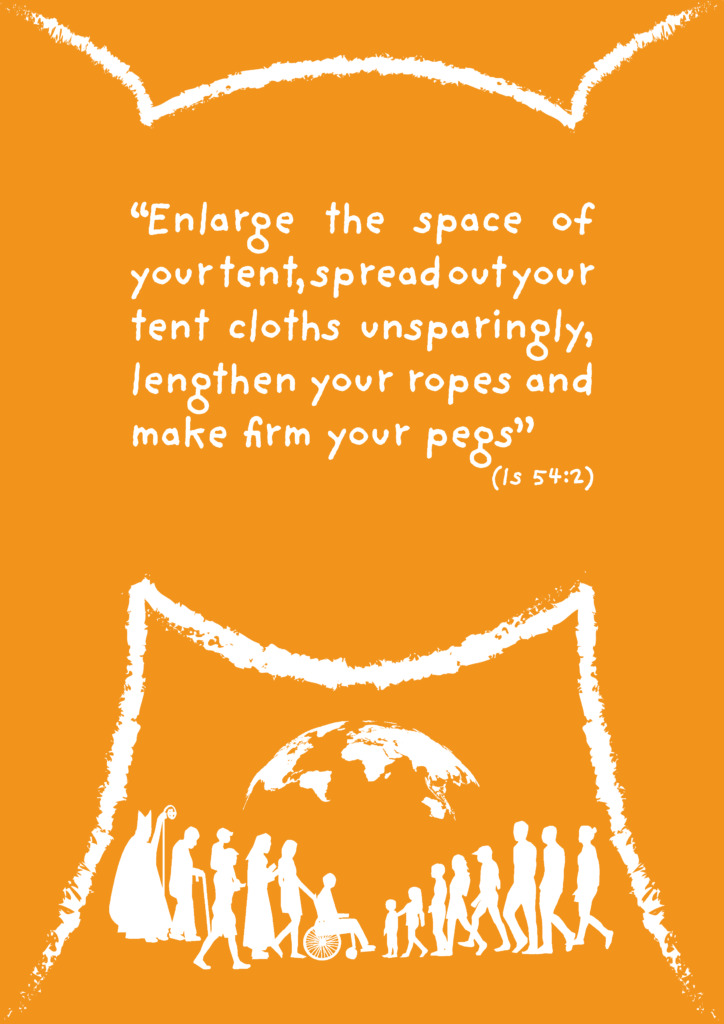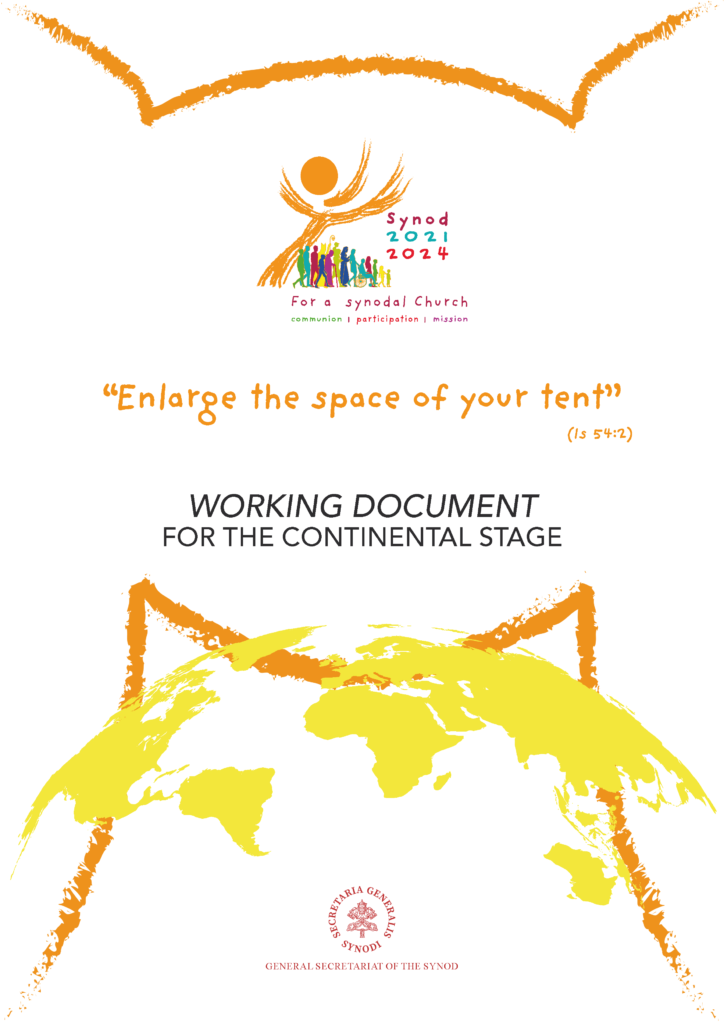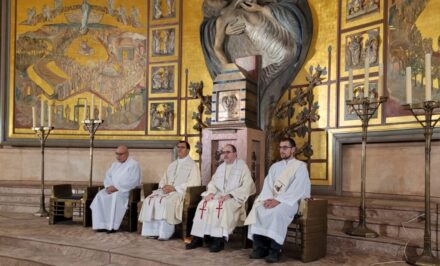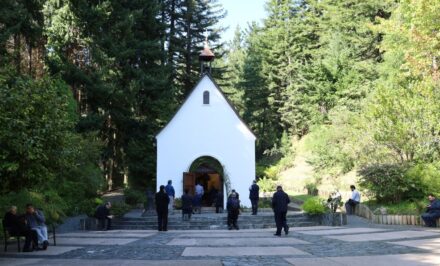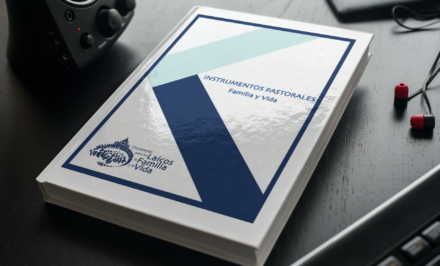SYNOD 2021 – 2024 •
The General Secretariat of the Synod published on Thursday, October 27, the document for the new continental stage (January to March 2023) of the synodal process of the universal Church initiated by the Pope in 2021. —
The text is the result of the summaries of the consultation of the People of God in the first stage of the synodal process and will be the basis of the work and “frame of reference” for “the period of listening, dialogue and discernment of the continental synodal assemblies (January-March 2023).”
Looking at the chapters or steps of the document is encouraging, or, as one schoenstatt.org staff member said, “brings back joy in the Church.”
A unique experience
The introduction to the document emphasizes that in the first part of the deliberative phase “millions of people from all over the world were involved in the activities of the Synod: some by participating in the meetings at the local level, others by collaborating in motivating and coordinating the activities at the various levels, others by supporting them in prayer. The real protagonists of the Synod are all the people who participated […] Synodality was no longer an abstract concept but became a concrete experience; they had a taste for it and want to continue doing so.”
As for the number of participants, the turnout “exceeded all expectations.” Comments were received from 112 of the 114 bishops’ conferences and from all 15 Eastern Catholic Churches, as well as reflections from 17 of the 23 dicasteries of the Roman Curia and from superiors general, institutes of consecrated life and societies of apostolic life, associations and movements of lay faithful. In addition, more than 1,000 contributions were received from individuals and groups, as well as opinions gathered through social networks thanks to the initiatives of the “Digital Synod.”
The document also states that no text “could sum up the depth of faith, the vitality of hope and the energy of charity that flow from the contributions received. Behind this is the power and richness of the experiences that were had in the different churches as they embarked on the journey and opened themselves to the diversity of voices that spoke.
An open document for an open Church
At the press conference it was stressed that this document “is not conclusive, because the process is far from being finished; it is neither a document of the ecclesiastical magisterium nor the report of a sociological study; it does not offer the formulation of operational indications, goals and objectives, nor the complete elaboration of a theological vision, although it does contain the precious theological treasure contained in the report of an experience: namely, having listened to the voice of the Spirit on the part of the people of God, which made their sensus fidei emerge. But it is also a theological document in the sense that it is directed to the service of the Church’s mission: to proclaim Christ who died and rose for the salvation of the world, in order to save the world.”
“Catholics want a “Church like a big tent” that excludes no one and takes urgent action to recognize the role of women. A groundbreaking synod report has been published that offers remarkable insight into the hopes of Catholics today,” commented Christopher Lamb.
Pope Francis, in his homily Feb. 15, 2015, during a Eucharistic celebration with newly appointed cardinals, emphasized, “There are two kinds of logic of thought and faith: the fear of losing the saved and the desire to save the lost. Even today it sometimes happens that we find ourselves at the crossroads of these two types of logic: the logic of the teachers of the law, that is, to banish the danger by removing those infected, and the logic of God, who with his mercy embraces and welcomes man, reintegrating him and thus transforming evil into good, condemnation into salvation, and exclusion into proclamation. These two types of logic run through the entire chain of the Church’s history: exclude and reintegrate.”
The People of God chose the logic of the Church open to all. In Schoenstatt, years ago, we called this, “Open Shrine.”
The document does not ignore or suppress “burning” issues, it emphasizes the need to “assume stable ministries, to have real co-responsibility in the governance of the Church, to dialogue with other Churches and with society in order to reach out in a fraternal way to those who are distant,” and it takes note of the debates on issues such as the role of women, access to Communion for remarried divorcees, reforms in the ministries, or the blessing of homosexual couples, without taking a definitive position.
“The working document for the continental phase of the Synod of Bishops on synodality shows – as probably no document presented at the Vatican before it – how diverse and multifaceted Catholics around the world believe, think and live. Priests’ children, ordination of women and polygamous relationships are just a few of the key words found in the 45-page Vatican paper,” writes Benedikt Heider on katholisch.de. “Asked about these and other “hot potatoes,” synod head Mario Grech referred to real-life Catholicism: “We have to listen to and perceive everything.” This attitude, he said, is an indispensable part of a synodal and thus listening church. “In terms of content, we are not following an agenda. With the working document, we are only giving back what came to us in Rome from all over the world,” he stressed several times that evening.”
“The people of God express a desire to be less of a preserving and maintaining church and more of a missionary church,” the document says, expressing “the joy of walking together and the desire to continue to do so; how this can be achieved as a truly global Catholic community has yet to be fully discovered.”
“We are a learning Church, and for this we need constant discernment that helps us to read together the Word of God and the signs of the times in order to walk in the direction in which the Spirit is pointing us,” concludes the text, which proclaims the need for “equally constant reform of the Church, its structures and style,” “in the footsteps” of the Second Vatican Council.
Download the Document for the Continental Stage in ENG – ESP – FRA – ITA – POR
English version of the document
Original: Spanish. Translation: Maria Fischer @schoenstatt.org


